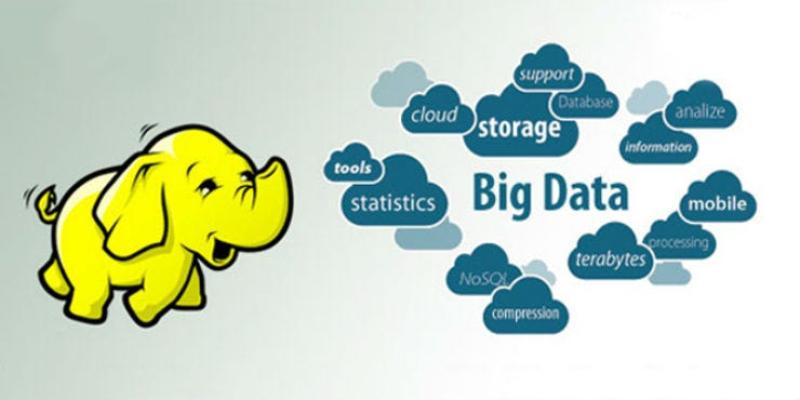In the evolving landscape of data management and analysis, Hadoop and Big Data analytics have emerged as pivotal technologies transforming enterprise operations. Organizations across industries are harnessing these tools to extract actionable insights from vast and complex datasets. This article delves deeply into Hadoop’s architecture, the integration of Big Data analytics, and their combined impact on data-driven decision-making.
Understanding Hadoop Architecture and Its Core Components
Hadoop is an open-source framework designed to process large volumes of data across distributed computing environments. Its architecture primarily consists of the Hadoop Distributed File System (HDFS) and the MapReduce programming model. HDFS enables the storage of massive datasets by dividing them into smaller blocks distributed over multiple nodes in a cluster. This distributed storage approach ensures fault tolerance and high throughput, making it suitable for handling the exponential growth of data generated by enterprises, social media, IoT devices, and more.
MapReduce is Hadoop’s data processing engine, facilitating the parallel processing of data by breaking down tasks into the “Map” phase, which filters and sorts data, and the “Reduce” phase, which aggregates and summarizes results. This model allows Hadoop to efficiently analyze unstructured and semi-structured data across commodity hardware. Alongside HDFS and MapReduce, ecosystem projects such as Hive, Pig, and YARN contribute to the flexibility and scalability of the Hadoop environment, enabling SQL-like queries and resource management respectively.
The Role of Big Data Analytics in Enhancing Business Intelligence
Big Data analytics involves examining large, diverse datasets to uncover hidden patterns, correlations, and customer preferences. When integrated with Hadoop’s scalable infrastructure, businesses gain unprecedented capabilities to perform real-time or near real-time data analysis without the constraints of traditional data warehouses.
Hadoop and Big Data Analytics powered by Hadoop allows organizations to optimize operations, improve customer experiences, and innovate product development strategies. For instance, in retail, analyzing purchase histories and social media sentiments helps personalize marketing campaigns and inventory management. In healthcare, analyzing vast amounts of patient data accelerates diagnostics and improves treatment outcomes. Financial institutions leverage these analytics for fraud detection and risk management by scrutinizing transactional data streams.
Navigating Comprehensive Research Reports on Hadoop and Big Data Technologies
For enterprises and analysts seeking in-depth understanding and market dynamics related to Hadoop and Big Data analytics technologies, a range of detailed research reports provide vital insights. These reports typically cover global and regional adoption trends, vendor landscapes, technology advancements, and competitive analysis across sectors.
Market research documentation focusing on Hadoop and Big Data analytics can be invaluable for decision-makers who require quantifiable data on market growth projections, investment patterns, and emerging use cases. Such resources also highlight how innovations like cloud-based Hadoop offerings and machine learning integration are shaping industry standards. Accessing these analytical reports equips businesses with data-driven strategies to make informed technology investments and enhance their analytical capabilities.
Commercial Applications Driving Investments in Hadoop Ecosystem
The commercial viability of Hadoop and Big Data analytics is evident in the expanding portfolio of use cases adopted by enterprises worldwide. Companies across manufacturing, telecommunications, banking, and transportation invest significantly in Hadoop-based platforms to capitalize on the scalability and cost-efficiency Hadoop offers.
This investment trend is propelled by the growing demand for real-time analytics capabilities, seamless integration with existing IT infrastructure, and the ability to process vast data quantities at reduced costs. Cloud service providers increasingly offer Hadoop as a managed service, lowering entry barriers for mid-sized businesses and fostering widespread adoption.
Moreover, partnerships between technology firms and industry verticals are accelerating innovation in tools that enhance data ingestion, cleansing, and visualization, making Big Data projects more accessible and effective in meeting business objectives.
Transactional Impact of Hadoop on Data-Driven Organizational Transformation
Hadoop’s role in transactional data processing is particularly significant in sectors requiring the efficient handling of high-volume, high-velocity data. Real-time processing frameworks compatible with Hadoop, such as Apache Storm and Apache Spark, enable transaction-heavy industries to analyze streaming data continuously.
This capability influences operational efficiencies by supporting faster decision-making processes, preventing data bottlenecks, and enabling predictive maintenance and dynamic pricing strategies. For example, logistics companies use Hadoop-integrated platforms to track shipments in real-time, optimize routes, and reduce fuel consumption, directly impacting bottom-line profitability.
The transactional transformation influenced by Hadoop and Big Data analytics underpins a paradigm shift in how organizations approach data management — moving from batch-based traditional models to continuous, adaptive analytics environments that support agile business models.
Future Directions in Hadoop and Big Data Analytics Development
Ongoing developments in Hadoop and Big Data analytics focus on improving interoperability, enhancing AI and machine learning integration, and expanding edge computing capabilities. These advancements aim to refine data processing speeds, security frameworks, and ease of deployment.
Emerging trends highlight the growing relevance of hybrid cloud solutions that combine on-premise Hadoop clusters with cloud resources to balance control and scalability. Innovations in data governance and automated data lineage tracking further support regulatory compliance and data quality assurance, crucial for industries handling sensitive information.
As enterprises continue to explore diverse data sources — including multimedia, sensor data, and transactional logs — the evolution of Hadoop and Big Data analytics platforms is expected to align more closely with these complex data ecosystems, facilitating comprehensive analytical insights across the business spectrum.
Get this Report in Japanese Language: Hadoopとビッグデータ分析市場
Get this Report in Korean Language: Hadoop 및 빅데이터 분석 시장
About Author:
Money Singh is a seasoned content writer with over four years of experience in the market research sector. Her expertise spans various industries, including food and beverages, biotechnology, chemical and materials, defense and aerospace, consumer goods, etc. (https://www.linkedin.com/in/money-singh-590844163)
